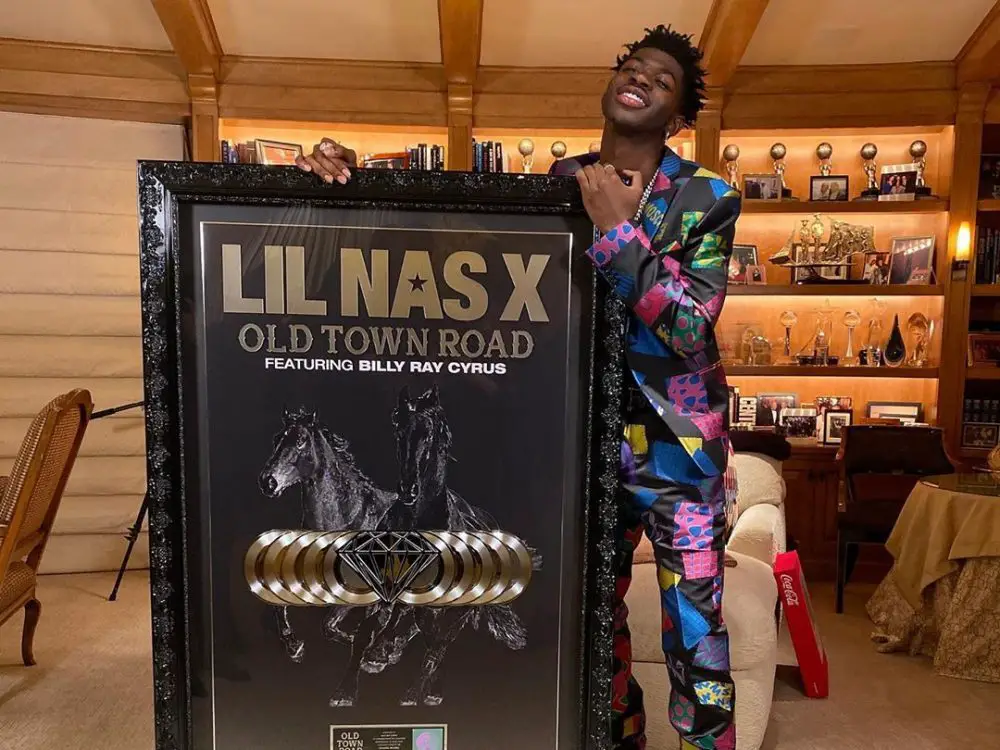Twenty years ago, the most common way for young people to discover music was the radio. In recent years, however, streaming services have dominated both how millennials find new tunes and how artists gain popularity. “Self-publishing” services today make it easier for singers to distribute and market their music with an unprecedented level of agency, allowing for content to pick up traction in ways that were once unheard of. The most notable of these services is Soundcloud, which allows anyone to upload their own music. In 2018, XXXTentacion and Juice Wrld were among the top artists of the year, both of whom got their start on Soundcloud before being officially signed to a label. However, 2019’s top music was dominated by a new kind of streaming service — and one that isn’t even really a streaming service: TikTok
Success Stories
Michael Pelchat, better known as @nicemichael on TikTok, was the first person to post the genre-bending country-trap hit “Old Town Road” by Lil Nas X on the platform, subsequently inspiring thousands to dress in their favorite cowboy outfits and dance along to the track.
The success of “Old Town Road” is a prime example of how TikTok can propel a song into stardom. Lil Nas X himself credits TikTok for helping boost the song after its streams fell stagnant after its initial release.
The artist told Time Magazine, “When TikTok hit it, almost every day since that, the streams have been up. I credit them a lot.”
He admits to purposely posting meme videos to his own song in hopes that the shareability of the content would organically drive its popularity. And it worked. The song spent a total of 19 weeks on the Billboard Hot 100 at No. 1, dethroning Mariah Carey and Boyz II Men’s 1995 record, “One Sweet Day,” and the 2017 Luis Fonsi and Daddy Yankee hit, “Despacito,” as the longest-running No. 1 song.
But Lil Nas X isn’t the only one benefiting from the platform’s ability to boost one to stardom. Rapper Sueco the Child signed with Atlantic Records after his single “Fast” blew up on the platform.
The songwriter told The Ringer: “When I saw TikTok, I instantly went: This is how it’s done. They don’t need to make the content, they have other people making the content for them. It blows up and becomes a meme organically on this app.”
It seems like nowadays the best way to boost a song’s popularity is to put it on TikTok. At the moment, there are a handful of songs on the Billboard Hot 100 that originally gained traction due to appearances on the platform. Currently, the highest ranked songs that have ties to TikTok are “Dance Monkey” by Tones and I at No. 6 and Arizona Zervas’s “Roxanne” at No. 7. Due to the single’s success, Zervas became the second artist to sign to Columbia Records after having a viral song on TikTok, the first being Lil Nas X.
Lizzo’s “Truth Hurts” went TikTok viral when it inspired the DNA Test Challenge last spring. The challenge took the song’s line, “I just took a DNA test, turns out I’m 100% that b—-” literally and inspired videos revealing what users’ DNA tests said about them and their families.
https://www.youtube.com/watch?v=jnKGyFWC75U
After its success on TikTok and debut at No. 50 on the Billboard Hot 100 in May, “Truth Hurts” became a viral sleeper hit. The song, originally released in 2017, eventually climbed to the top spot on the charts in September 2019, two years after its release.
Rapper Supa Dupa Humble saw similar success with his 2017 song “Steppin” after it became central to the I Don’t Know Challenge, leading its popularity to new heights within the online community. The artist saw an increase in the song’s view count on YouTube, accompanied by an influx of comments thanking TikTok for helping them discover the song.
What Makes TikTok Different?
The app itself goes beyond just showcasing music accompanying videos up to one minute in length; TikTok became a vessel for the creation of punchline-dependent dance routines, makeup tutorials, comedy skits and lip-syncing videos. What separates the social media platform from traditional streaming services, such as Soundcloud and Spotify, is the intent to listen. TikTok creates a space where users can discover new unexpected songs rather than listen to overplayed tracks that they already know.
Many of the songs used on TikTok aren’t used to promote the artist or the music itself, but are a part of the punchline or dance routine being performed. Many users come for the video’s content itself — however, many stay longer for the track and branch out to find the full version if it catches their interest. If the melody has a beat that’s easy to dance to or a notable lyric, it can be reproduced by different people and reach a larger audience. Users go to Spotify to listen to the music they already know and like. But they go on TikTok to watch content that might have a song they’ll end up liking more.
Attaching a dance and theme to an already catchy song only ensures that the tune will be used in another post. It only took one person to upload “Old Town Road” from Soundcloud onto TikTok to single-handedly become responsible for launching the song to the Top 100 charts.
There is currently a 152-song, 215,000-follower playlist on Spotify named “TIK TOK SONGS.” But what makes a TikTok song? There is no strict recipe for creating a beat or rhythm that will go viral on the app. Yet, many so-called TikTok songs are usually catchy, with literal lyrics and a circular beat making the incorporation of hand movements easier.
What This Means for The Future
Last year’s top hits were largely dominated by new refreshing artists, like Billie Eilish, Lil Nas X and Lizzo, with many of these artists owing their success to TikTok. Officially one month into 2020, it appears the No. 1 song on the Hot 100 is “The Box” by Roddy Ricch, whose fame can be partly credited to a number of TikToks featuring the track. The song managed to block Justin Bieber’s comeback single “Yummy” from debuting at No. 1, giving way to a new trend in music: the domination of new and diverse artists on the Top 100 charts.
If 2019’s artist trends and Ricch’s early hit gives any indication as to how 2020’s music will progress, we will likely continue to see the emergence of new artists climbing the charts and creating some of the biggest songs of the year. It wouldn’t be surprising if the discovery of these artists continued to come from TikTok.

















